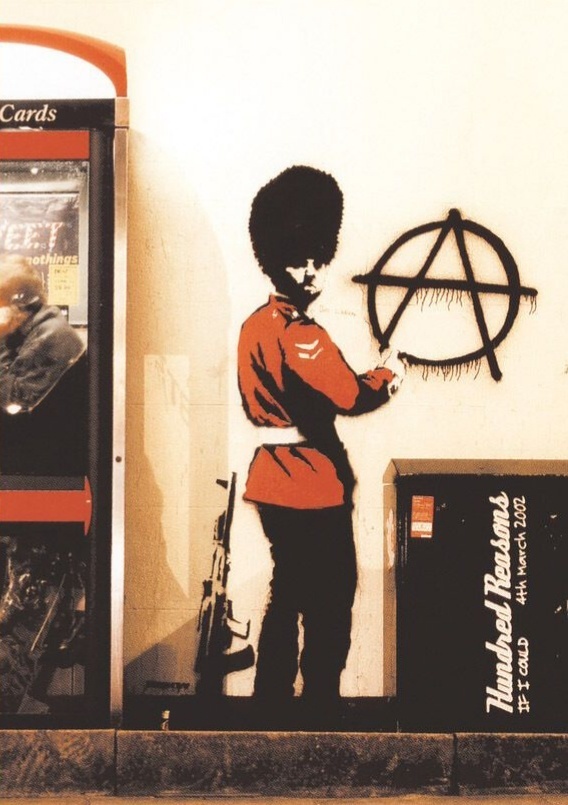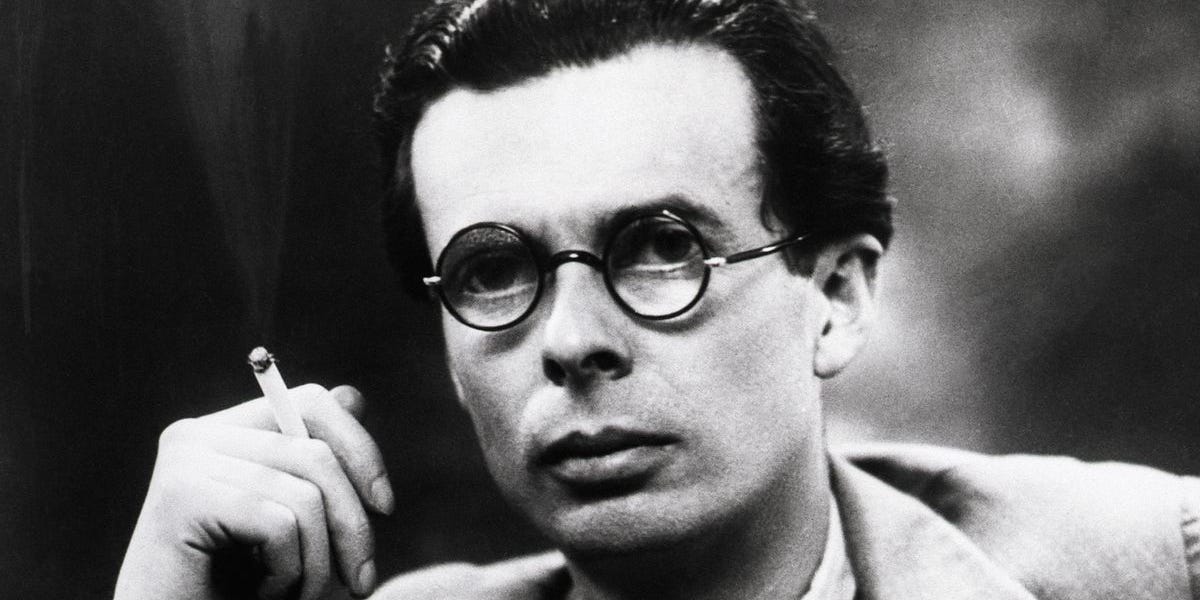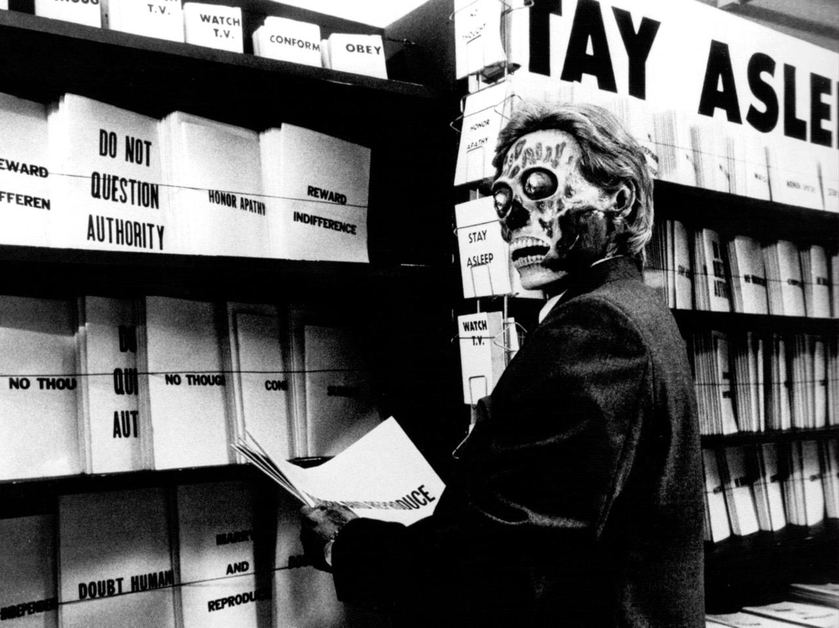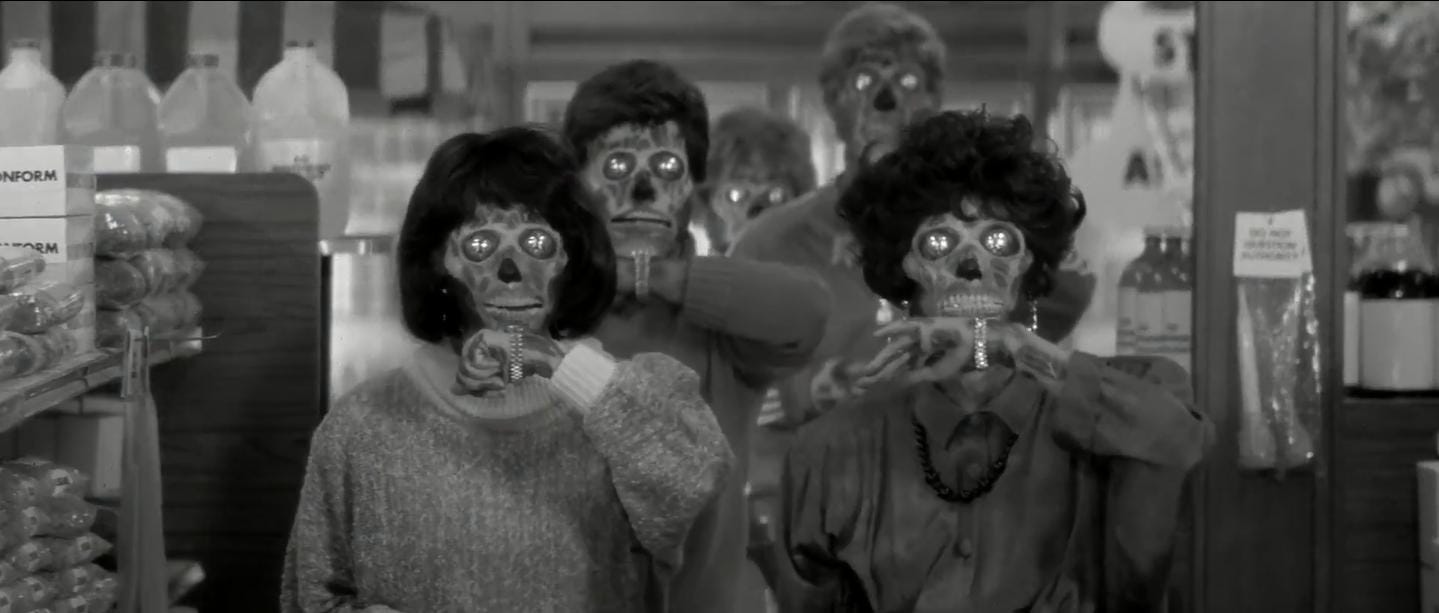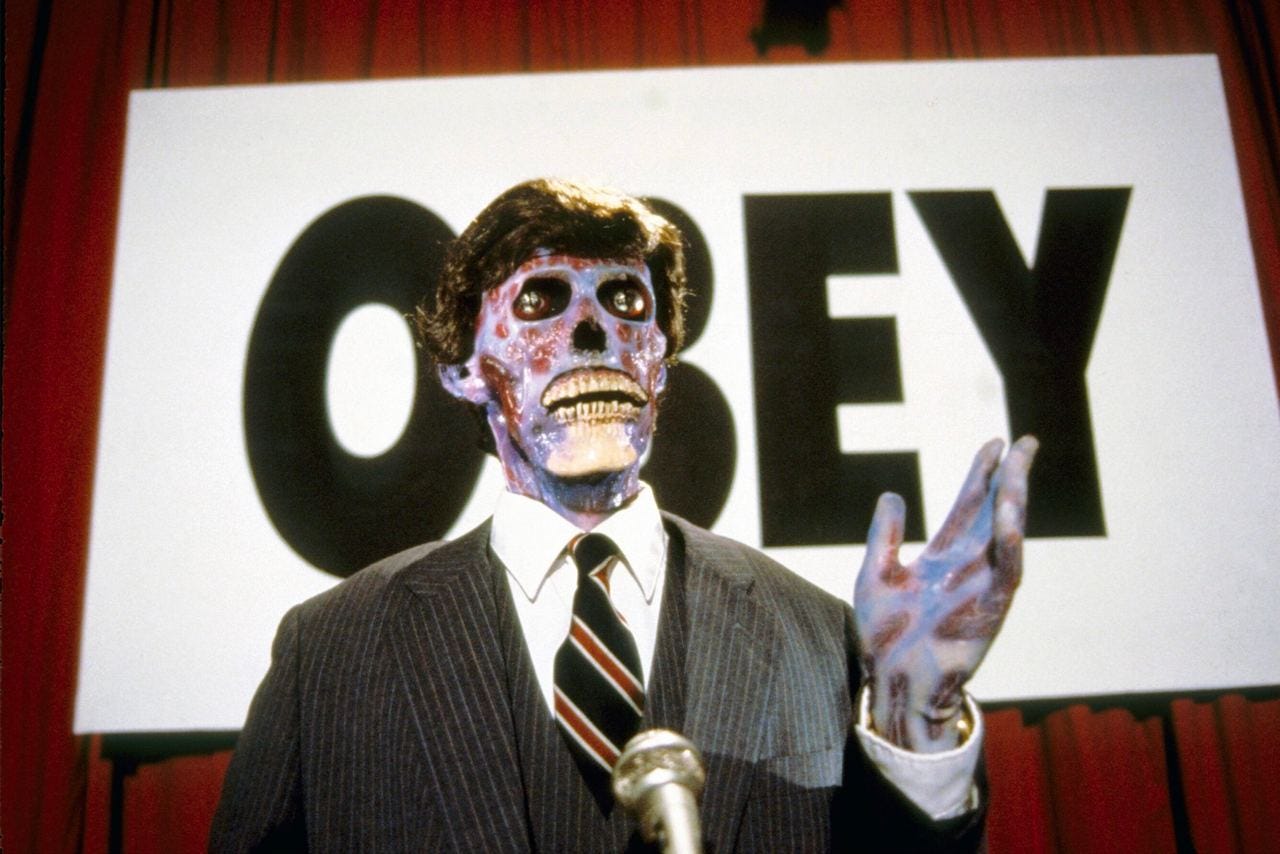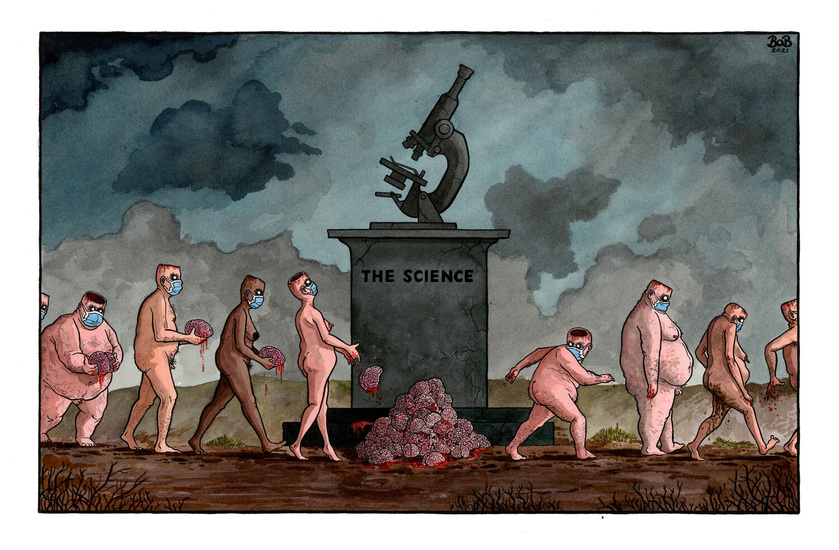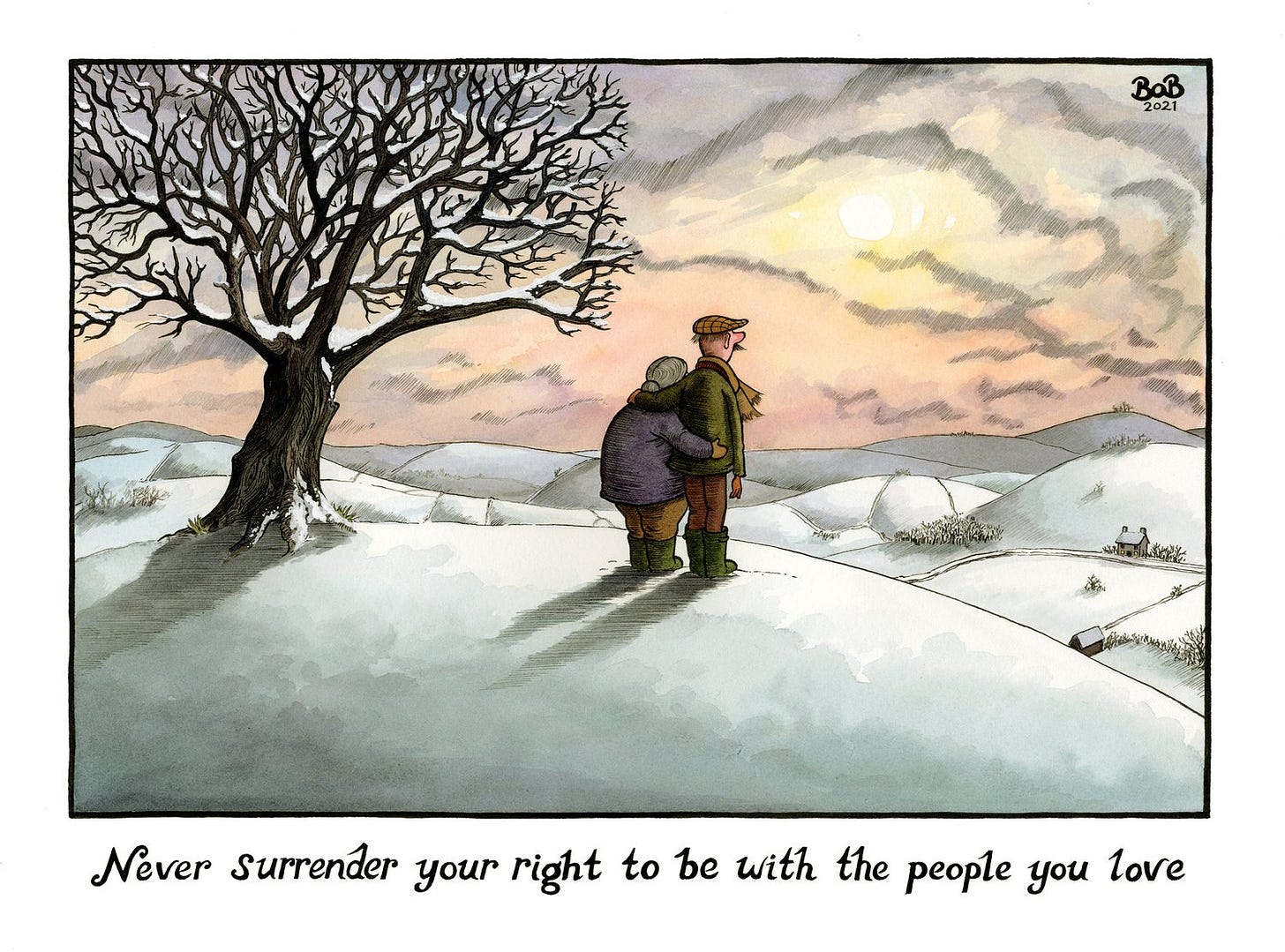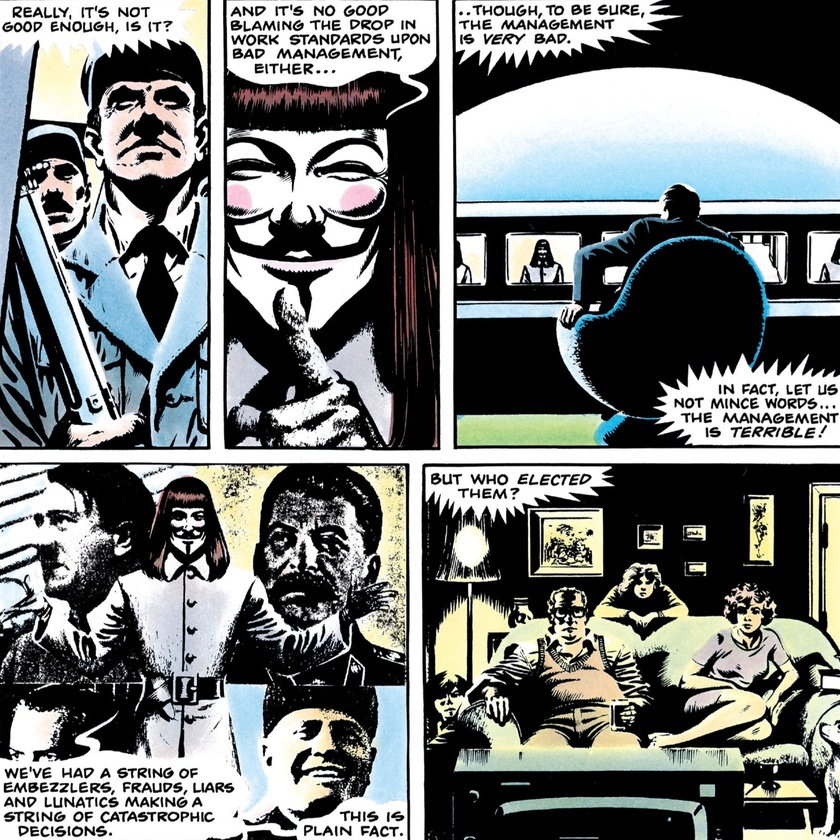"The queen is dead, long live the king!"
The sentiment behind this proclamation is to both mourn the death of the passing monarch and assure the monarchy's subjects that the monarchy shall live on in the incumbent. But why would one outside of the monarchy's circle of influence — of whom have the obvious incentive to gain the incoming ruler's favour in order to gain influence, authority, and fortune for themselves — say such a thing and actually mean it, given that the relationship between the subject and the monarch is one objectively of servant and master? And in light of this unbalanced dynamic between the subject and the ruler, why is it considered an absurdity by the majority for one to bring voice to this absurdity?
The answer is patriotism, which is to say the conflation of love for one's country with love for one's rulers, whether they be monarchs, democratically-elected politicians, dictators, or any other flavour of government that has reigned over the population for so long that it seems absurd for the population to imagine a life without it. What this achieves over the course of space and time is normalising this way of things, whatever "this" may be, to the extent that after many generations, the memory of how this way of things came about decomposes in the population's memory. At a certain point, after this way of things has fully integrated itself into the minds of the population, the servant, at long last, begins to love their servitude — as was always the intent of the ruling class. This love manifests itself in the form of symbols, monuments, celebrations, and most of all, human sacrifice to honour and preserve its now long established order.
We stand in this latter point in space and time, where this order that was once new is now ancient. It therefore stands to reason that the common subject would find it rather difficult to comprehend one who would dissent from this long standing tradition embraced by everyone around them. But if one travels back to the formation of this order, my dissidence suddenly won't seem so peculiar.
As one knows full well, if one were to stop paying tribute — taxes — to the ruling class — government, of which the monarchy is apart and is in fact above — then one would most certainly find themselves confronted by the enforcers of its will, without whom none of its order would be possible — police — and the consequence of such disobedience is a lengthy stay in a cage — prison — or, if one attempts to violently resist, death. This being the foundation of its order, and the looming threat that influences all of one's interactions with it, the relationship between oneself and one's ruler cannot be said to be consensual. Since one cannot leave without violent repercussions to compel them to stay, this relationship is in fact an abusive one, and in a private context, no one would hesitate to condemn a relationship of this sort as such. But when dressed up in a pristine, well fitted, ceremonious looking costume, this basic understanding of morality and human interaction is totally abandoned by the majority of the population — and this is where the majority and I differ: I do not abandon basic morality because someone put on an outfit and declared themselves the "law", no matter how long they've insisted upon doing so.
Therefore, the origins of this "law and order" is akin to a resourceful mafia — now known as the government — approaching oneself and sticking a gun to one's head, or more accurately, hiring other thugs — now known as the police — to stick their guns to one's head and saying "your money or your life" — now known as taxation. One, after submitting to their demands, must continue to pay tribute to this mafia under constant threat of the same violence, and after a given number of years of this being the way of things — now known as the law — the mafia approaches one again and demands that the contributor — now known as the taxpayer — celebrate the day the now established order first began their reign over one's pocket and one's life — now known as the jubilee. And if one, such as I, voices anything but pride for this sort of order — patriotism — I am condemned as ungrateful for everything they do for me, when everything they do for me is done whilst holding a gun to my head with one hand and rooting through my pocket with the other.
If their order was not established in this manner — involuntarily — then I would have no such thing to say about it. But given that it was and continues to be so, only in a different arrangement, I cannot approve of its existence let alone mourn the passing of a figurehead of what is nothing more than a well dressed cabal of thieves. So I do not mourn the queen's passing, but nor do I rejoice at the news of her death — I am merely indifferent.

